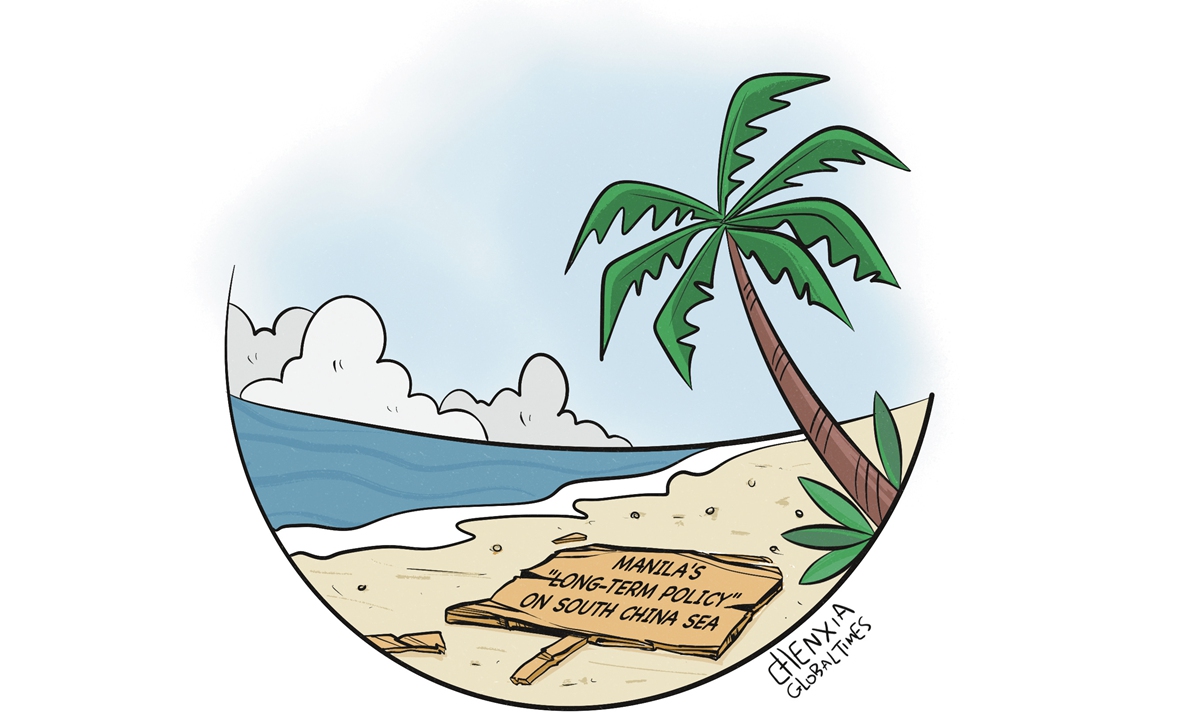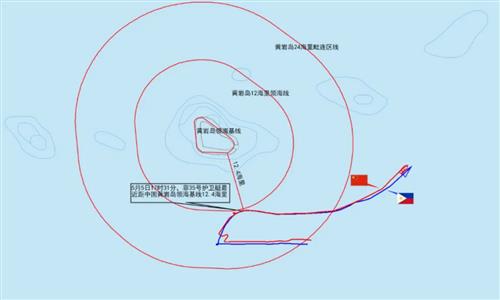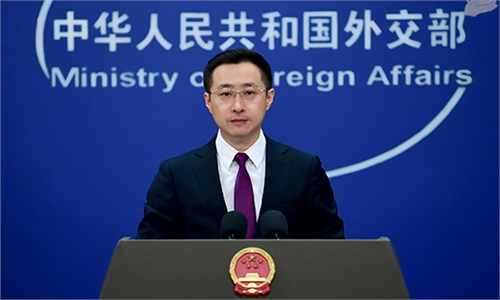Manila should consider rationally what kind of ‘long-term policy’ it needs in S.China Sea

Illustration: Chen Xia/GT
According to a recent article from the Philippine media outlet Manila Standard, the Philippines is developing a "long-term policy" on the South China Sea amid rising tensions as a direct response to what it called "China's baseless, excessive, and expansionist territorial claims, militarization, and confrontations with its neighbors." The report claimed this "long-term policy" represents "one that will transcend administrations to ensure its continuity and sustainability as the government pursues its agenda in the context of geopolitics and international relations," citing a Philippine official. Resting on erroneous accusations against China, the so-called "long-term policy," if maintained over the long haul, would make people worry that it would inevitably sow enduring risks to the region's security and stability.Notably, the proposal for this so-called "long-term policy" comes amid the Philippines' midterm elections, which were held on Monday. Chen Xiangmiao, director of the World Navy Research Center at the National Institute for South China Sea Studies, told the Global Times that by hyping this purported long-term South China Sea policy, the Philippines is, in the short term, supporting the current administration's election campaign, and, in the long run, revealing its confrontational mind-set and its strategy of drawing in external powers to the South China Sea.
Since the current administration took office, the Philippines has repeatedly infringed upon Chinese sovereignty and engaged in provocations in the South China Sea. Not only has it attempted to convert the illegally grounded warship at Ren'ai Jiao into a permanent facility, but it has also carried out a series of provocative actions that clearly violate the understandings and commitments previously reached between China and the Philippines. The Philippines' so-called "long-term policy" on South China Sea is an attempt to institutionalize and strategize the current administration's provocative mindset. However, if it insists on cementing today's provocative approach as a lasting strategy, it will only further damage its own interests and undermine peace and stability in the South China Sea.
The Philippines attributes its long-term South China Sea policy to China's actions, which are baseless accusations. The real root of the current tensions lies in the Philippines' continual maritime infringements and provocations. Yet, to mislead the international community, the Philippine government repeatedly distorts China's legitimate, reasonable measures to safeguard its rights as "aggressive and unsafe," fabricating the lie of "being bullied by the bigger country."
But playing "victim" is nothing more than a puppet show. But such infringements and provocations will backfire - those who willingly become mere pawns will ultimately be discarded. By courting external countries, the Philippines hasn't made itself more secure; on the contrary, it has turned its territory into a potential battleground and is steadily losing the support of regional countries.
For the vast majority of Philippines people, raising living standards is both a more realistic and more urgent need. What the Philippines truly requires is a peaceful, stable regional environment. Some Philippine politicians, rather than addressing livelihood concerns in the midterms, are attempting to turn the South China Sea dispute into a hot issue - aiming to inflame nationalist sentiment and claw back lost public support.
Resolving the South China Sea dispute calls not for confrontation but for cooperation; it is not a zero-sum game, but a path to shared development. The Philippine government should earnestly heed rational voices at home and abroad and reassess its foreign policy. If Manila genuinely wishes to craft a South China Sea policy that benefits the nation's long-term interests, it must abandon its provocative mindset and return to the proper course of dialogue.



